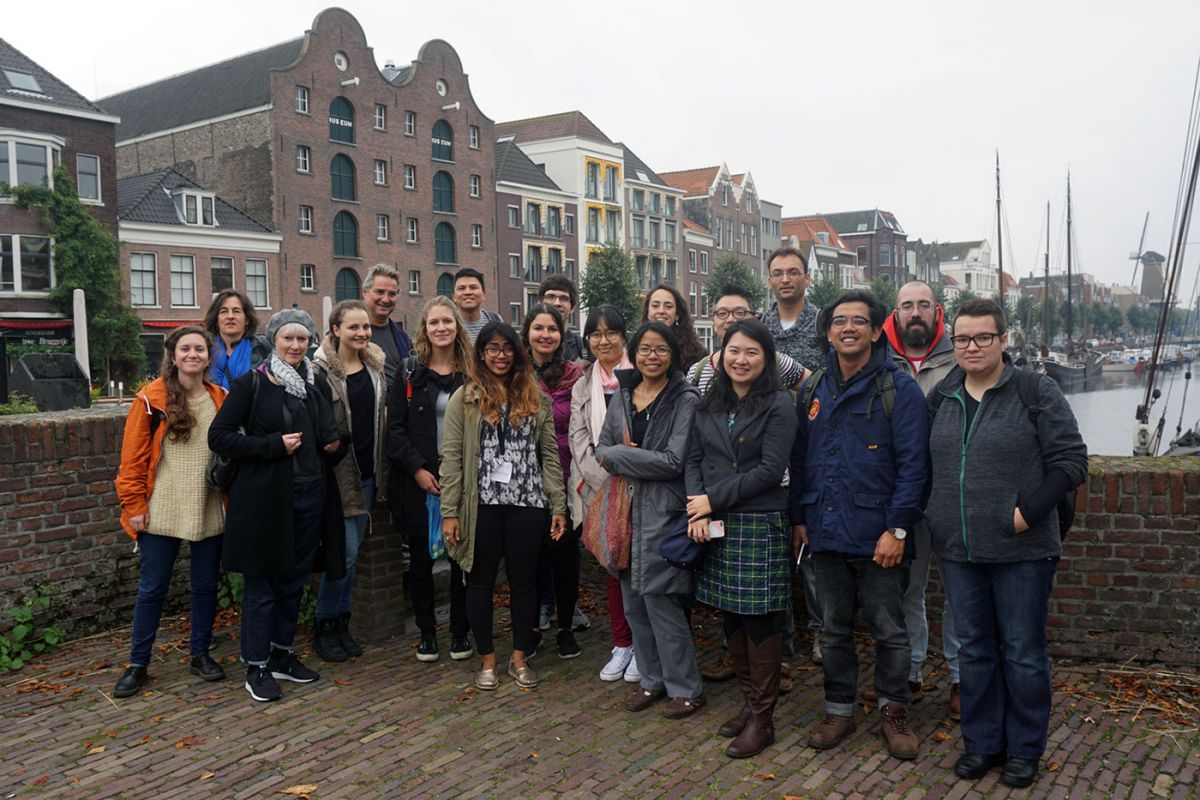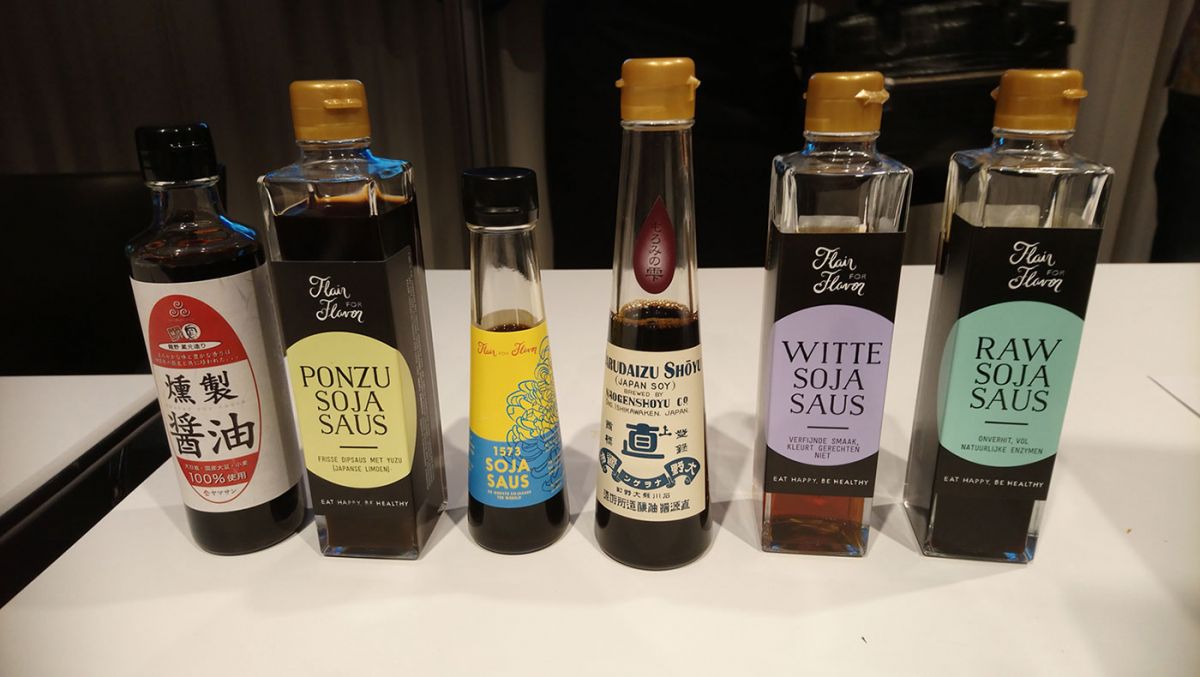Asian food. History, anthropology, sociology
Summer School, Leiden, the Netherlands, 25-29 September 2017
Leiden University in the Netherlands enjoys a world-wide reputation for its expertise on Asia and its many Asian collections, which recently have been brought together in the newly built central ‘Asian Library’. To coincide with its official opening in September 2017, the LeidenAsiaCentre and the Shared Taste Project at Leiden University, together with the International Institute for Asian Studies (IIAS) jointly organised a Summer School devoted to the academic study of Asian food.
Entitled ‘Asian food: history, anthropology, sociology’, the Summer School endeavoured to illustrate the landscape of interdisciplinary research on and study of Asian food, and food in general, in the intertwined areas of history, sociology and anthropology, while providing the participants with an opportunity to rethink their own research from a multi-disciplinary perspective. It was attended by seventeen international master’s and doctoral students from different disciplinary backgrounds and with varying research interests in Asian food. The Summer School was led by the international experts Dr Nir Avieli (Ben Gurion University, Israel), Prof Anne Murcott (SOAS, University of London, UK), Prof Katarzyna Cwiertka (Leiden University, the Netherlands) and Prof Anne Gerritsen (Leiden University/Warwick University, UK).
After words of welcome from the international experts and introductions by the participants, the students and lecturers had the opportunity to discuss various topics amongst themselves, from current interests to future research plans, while enjoying an Indonesian dinner buffet. The opening evening of the Summer School was concluded with the screening of the film The Lunchbox. Anne Sytske Keijser, lecturer of Modern Chinese and Chinese literature and film at Leiden University, introduced the film and briefly explained the importance of lunchboxes in modern Indian society.
The second day started with an introduction by Anne Murcott and Nir Avieli, who discussed the general ideas behind different approaches to the study of food. A variety of topics were discussed, including questions on ethnicity, ethnic food and local food; the distinction between analytical concepts and everyday vocabulary; and meanings of ‘exotic’ and ‘strange’ to ethnographic fieldwork. Their introduction was followed by talks on Asian food history by Anne Gerritsen and Katarzyna Cwiertka. Gerritsen chose a general angle, dwelling on the concept of how history can be regarded as a foreign country, and explained that food can be approached as a historical subject through material culture, tracking its changes through time. In her lecture, Cwiertka discussed the topic of food packaging and how packaged food is viewed mostly from a food perspective without giving enough attention to wrapping and packaging.
On Wednesday morning we visited the local market in the Leiden city centre, where we could experience the atmosphere and structure of markets in the Netherlands. After this, we visited the Leiden Museum of the Ethnology where we discussed various objects related to food and cultural/ethnic spheres. The museum visit was followed by a session in the Leiden University Library, which has extensive special collections of national and international fame, among which unique manuscripts, maps, atlases, prints, drawings and photography from East and West. The aim of the library session was to examine how library resources can be integrated into the study of food, as well as to make the participants more aware of the different kinds of resources that might be used in their own research. Beforehand, each student had selected one item from the collections that was made available for further study during the session. In addition, each student had to explain to the other participants why he or she had selected this object and what was special about it. Although time was too short for detailed analyses and research, we all did get a first impression of the value for one’s research of all objects discussed. Among these were, for example, the 17th century twelve-volume Herbarium Amboinense by George Rumphius, a Dutch colonial map, and Clusius' Libri Exoticorum (1605).
The Summer School also provided the opportunity for each student to discuss one’s own research with one of the international experts in person, which was valuable for developing new thoughts and ideas for research and how to proceed with our research in the future.
During a public evening event, Katarzyna Cwiertka gave a lecture entitled ‘Soy sauce - taste and beyond’. The lecture was followed by a soy sauce-tasting workshop provided by Alexander Bakker, the very passionate owner of Flair for Flavor, a business that imports natural flavour products from Asia.
The fourth day started with an instructional talk by Nir Avieli and Anne Murcott on how to conduct our fieldwork at the Visserijplein Market and the Markthal in Rotterdam. We wandered around these two different types of markets and conducted our own ‘fieldwork express’, as one of the participants described the experience. The first stop was the open farmers’ market at the Visserijplein in the immigrant neighbourhood of Bospolder Tussendijken in the western part of Rotterdam. This place is heavily influenced by various backgrounds. We could already feel this when we arrived in the street leading up to the market, with its many shops with signs in Arabic or Chinese. In the market place, Turkish, Moroccan, Chinese and Dutch stands exist next to each other and each one sells something typical belonging to their culture, be it fish, vegetables, fruit or the Dutch cheese and chips.
Our main goals were to determine what kind of space the market was, the feeling it gave to its visitors, how to record data and where to record data, as not every space is appropriate for this. For instance, a crowded alley between two stalls is not an appropriate place to take out your pen and paper. We were also instructed to look not only for social interactions between sellers and buyers but also how people behave towards food and amongst themselves. In the end we were not only examining food on the market, but also social regulations of the market place, as well as significant social categories.
Our second stop was the Markthal in Rotterdam, a food hall that transformed the market into something fashionable and into a place where people spend their free time and enjoy the food on offer for longer periods of time. Places like the Markthal are covered areas that form a hall as the name already suggests, and they cater to people as meeting places, where different foods and cuisines are on display. Unlike farmers’ markets, where food is bought for home usage and where social interactions are not considered the main focus of the place.
On Friday, the groups presented and shared their wonderful findings and reflections from the previous day’s ‘fieldwork express’. After the Summer School wrapped up with feedback from the participants on how they had experienced the intensive week, we concluded the session by discovering Leiden from a different perspective, namely from the water during a lunch on a boat while exploring Leiden’s canals and discussing urban development.
The five-day workshop went fast, but the Summer School enabled us to grasp fruitful ideas for our future projects. We learned much, not only from the lectures but also from the assignments, discussions and conversations with the international experts and our fellow participants, whom we are all more than happy to meet again in the future as colleagues. Lastly, we are grateful to all the international experts and supporting staff members who organised the workshop and gave us this opportunity to gain these productive experiences.
Ajda Flajs (University of Ljubljana, Slovenia) & Mary Hyunhee Song (CEAS, University of Turku, Finland) – Summer School participants

